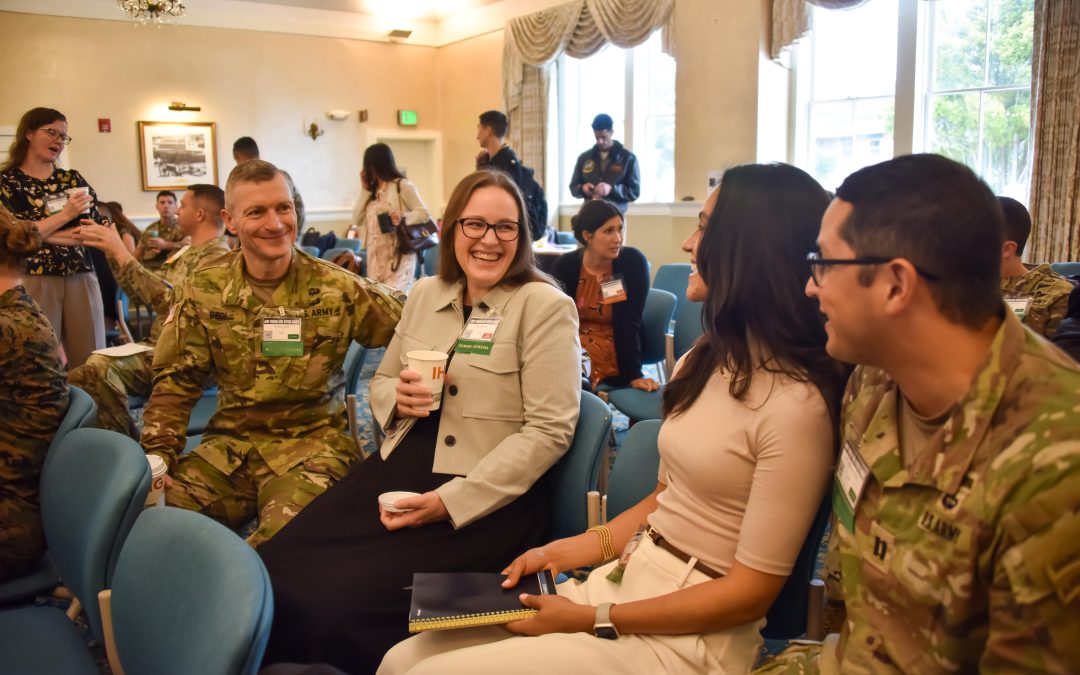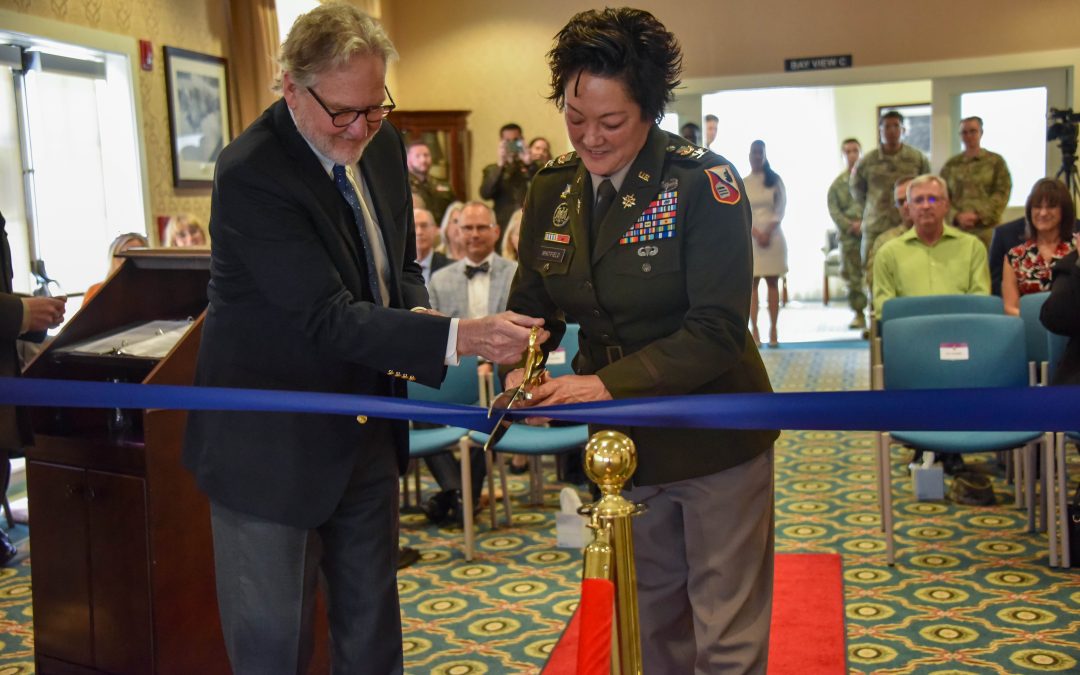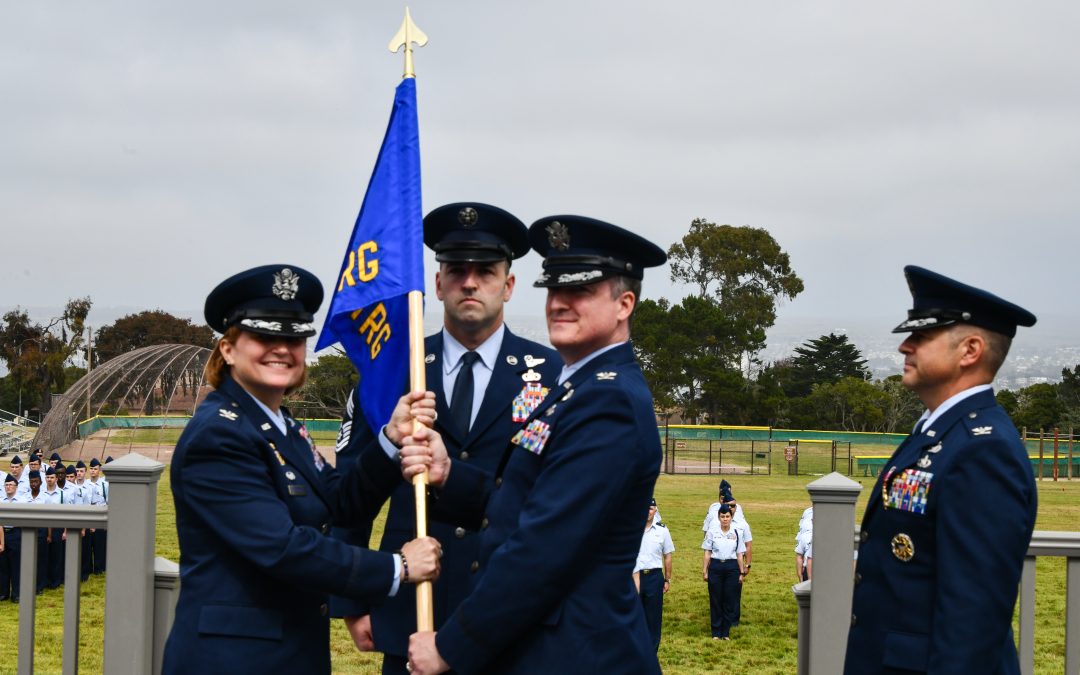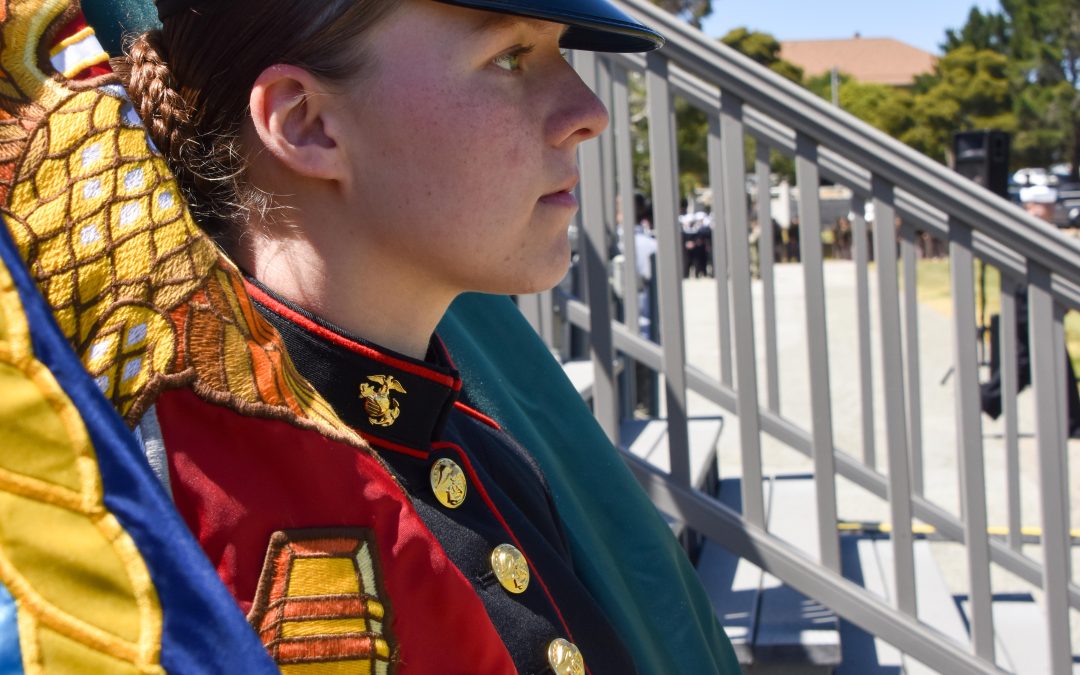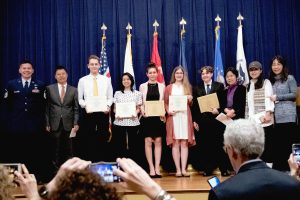
The five students of the Chinese Flagship Domestic Immersion Capstone Program celebrate their graduation from the Defense Language Institute Foreign Language Center.
The Defense Language and National Security Education Office celebrated the graduation of five students from the Chinese Flagship Domestic Immersion Capstone Program on May 25, 2023.
This, the third cohort of students, performed exceptionally well, solidifying the Defense Language Institute Foreign Language Center as a premier Flagship institution.
The Language Flagship is a nationwide government-led initiative aimed at revolutionizing language education in the United States. It offers students intensive language instruction to elevate their language proficiency to superior levels, thereby enhancing their academic degrees and the ability to be employed as civil servants.
“DLI is making a tremendous contribution and there’s a lot of interaction now between the universities and the professors there and the faculty here, and that’s really expanding,” remarked Dr. Sam Eisen, director of programs at DLNSEO.
The pilot program is spearheaded by DLNSEO, which provides strategic direction, policy support, and program oversight to military departments, defense agencies, and Combatant Commands concerning language, regional expertise and culture. As part of the Chinese flagship program, DLNSEO collaborated with DLIFLC to establish a domestic immersion program for students interested in quickly attaining sensitive national security positions.
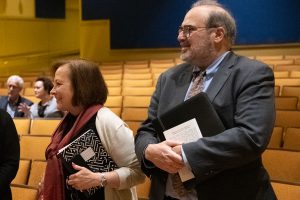
Dr. Clare Bugary, director of the Defense Language and National Security Education Office and Dr. Sam Eisen, director of programs at the Defense Language and National Security Education Office, were on-hand to witness the third graduating class of the Chinese Flagship Domestic Immersion Capstone Program.
“The Congressional intent of the Flagship Program is to transform how languages are taught at institutes of higher education,” stated Dr. Clare Bugary, director of DLNSEO, who was present at the graduation ceremony. Traditionally, language degrees focused primarily on literature, where students received a basic year of language instruction before transitioning into literature studies. However, this approach has changed and language programs now prioritize proficiency-based learning.
For Chinese language learners each student is required to complete a capstone before graduation. There are currently only two available capstone opportunities: one in Taiwan and the other in Monterey at DLIFLC. The Taiwan program accommodates approximately 70 students at a time, while the Monterey program offers a more intimate setting with only six students.
Chinese teachers from various Chinese flagship programs are sharing their best practices, which Bugary considers unique to this academic program. “You don’t see that in any other academic discipline. Nobody thought the universities could teach this way and they are. And so we’re really excited about it. And that is why we brought flagship here to DLI because … flagships are doing what DLI is also doing and DLI, of course, does it best.”
Additionally, all the recent graduates are recipients of the Boren Scholarship, which supports the study of critical languages. These scholars receive up to $25,000 to study abroad in regions vital to U.S. interests. In return, each graduate commits to one year of federal service to repay the scholarship.
“The federal government [postings] could be with many different agencies. We have 31 programs at 22 universities now teaching Arabic, Chinese, Russian, Persian, Portuguese and Korean,” Eisen explained.
Given the diverse range of majors pursued by the graduates, including STEM, anthropology, and foreign affairs, their expertise, combined with their language proficiency, will greatly benefit any government agency that gains their services.
“There’s a myriad of programs where we partner with universities, institutions of higher education, to provide language training and then pathways for those individuals into federal service,” Bugary added.
RJ McClain, a graduate from New York’s CUNY Hunter College where he majors in Psychology, was asked about his own employment prospects. RJ smiled and sighed, “I’m still waiting to hear back. It’s a long, long process.” A long process, indeed. It includes everything from background checks to obtaining top secret security clearances, which can take up to a year based on an individual’s bacπkground.
According to Bugary, depending on the future position, the security clearance process could be fast-tracked based on the acquiring agency’s needs. “The trick is many of them want to work for a three-letter agency that requires a high level of security clearance. And a security clearance has become very difficult [to obtain] if you spend an extensive amount of time overseas.”
However, the flagship program itself encourages students to travel overseas, whether it’s for a summer program in their sophomore and junior year or for their capstone in Taiwan or any other country where the languages of interest are spoken.
So, what happens to candidates who have extensively traveled outside the continental United States?
Bugary and her team are currently working internally with intelligence community partners to address the issue of security clearances for scholarship students. “The Department is who is sending them overseas and it’s the purpose of the program, expose them to other languages and cultures to achieve high levels of proficiency. It’s to make the government stronger and to support national security.”
But will the program continue? After all, this round of graduates was part of a pilot program. Bugary believes the program has a bright future.
“I don’t think we’re going to stop as long as we’ve got students that want to come,” she said. “We think it’s a great program. DLI has proven itself that they can do it. In fact, my vision is to see it grow and perhaps even into other languages.”
With their remarkable language proficiency and diverse educational backgrounds, Bugary is not only enthusiastic about the students’ futures but also the nation’s security. “They may go into industry, they may go into trade, they may go into education, whatever they go into is fine, but they are a citizen. A citizenry who has these skills and is making the country stronger.”


